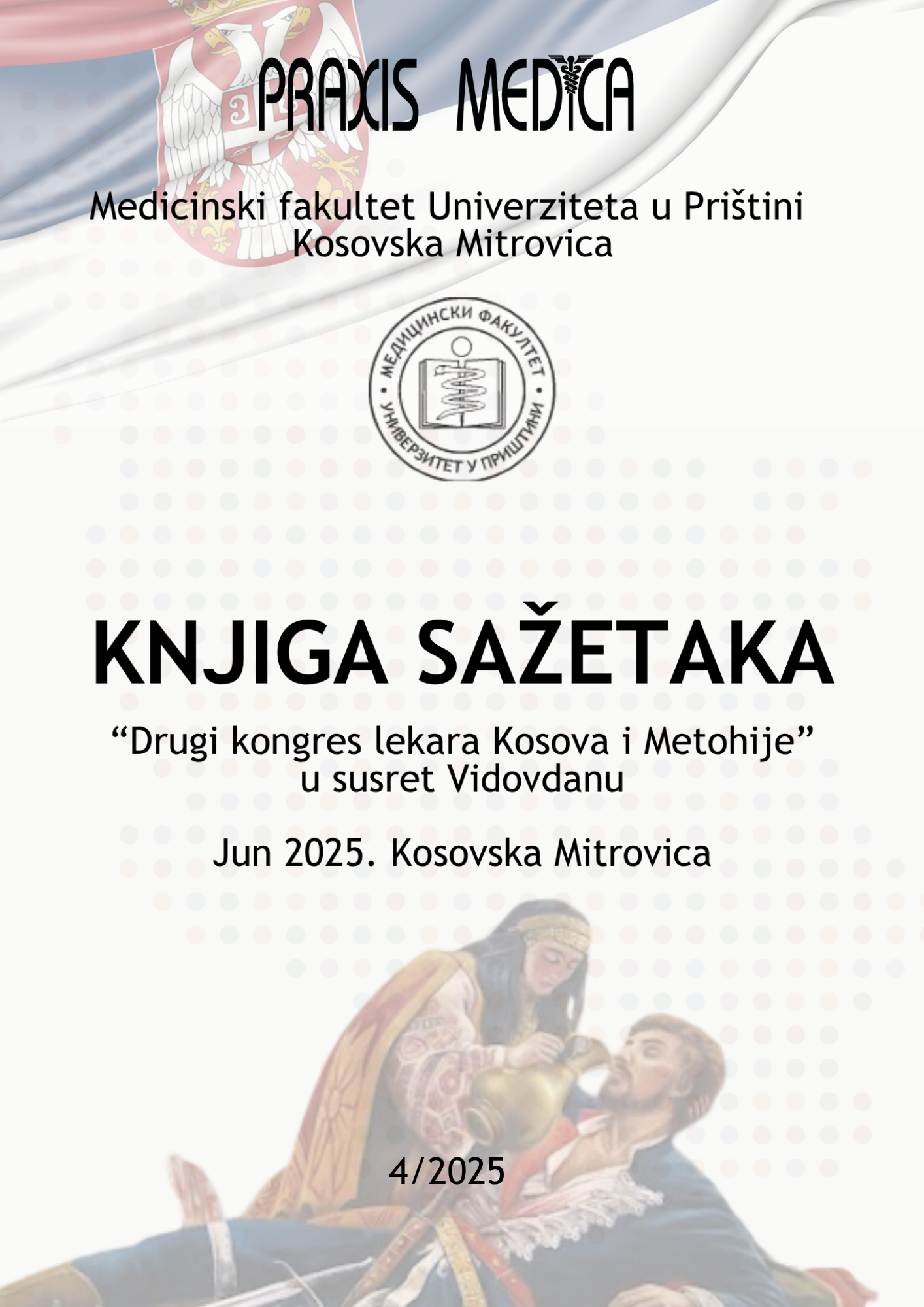
More articles from Volume 44, Issue 2, 2015
Awareness, habits and behaviors associated with the oral health of children in elementary schools on Kosovo and Metohia
Organization and collagen volume density of the gingiva in the patients with periodontitis
Research on presence of chosen risk factors for hypertension in medical students
Impact of adipose specific peptides on the course and prognosis of myocardial heart attacks
Pain and justification from dental intervention
Citations

1

Milena Protić-Ilić, Ivan Tušek, Milan Živković, Vladanka Vukićević, Aleksandra Ilić
(2019)
Prevalence of Early childhood caries in children of the Kosovo Pomoravlje and possible risk factors for its occurrence
Timocki medicinski glasnik, 44(1)
10.5937/tmg1901007PAwareness, habits and behaviors associated with the oral health of children in elementary schools on Kosovo and Metohia
Abstract
Oral health is an integral part of the general health of humans and significantly affect the quality of life. Dental caries is today the most widespread disease of our civilization, which if untreated leads to tooth loss. It is significant to note that studies show the possibility of successful prevention of diseases of the oral cavity. Traditionally, there has always been lower economic and educational level of the population in rural areas, and also a lower availability of dental services. Possible reasons for this include the lack of pediatric dental offices in schools in rural areas, the greater the distance of the dentist, the lack of properly organized school dental care, lack of knowledge about the importance of oral health by their parents as role models and unfavorable socio-economic status. The aim of this study was to examine the level of awareness and habits of children and parents toward oral hygiene and bad habits in the Serbian enclaves in Kosovo and Metohija and to compare them with children who live in urban areas in Kosovska Mitrovica. The study included 160 elementary school students in the area of Kosovska Mitrovica (urban area) and the Serbian enclaves on Kosovo and Metohia (rural area) which included elementary school students from Sirinić District, the Kosovo Morava, the central Kosovo, villages of Suvo Grlo and Banja in municipality Istok. By examining the frequency of tooth brushing we found that 32 (40%) of children in enclaves brush their teeth once a day, 40 (50%) two times a day, and only 8 (5%) of them maintain hygiene teeth 3 times a day. Boys who wash their teeth three times a day were 12.5% and 37.5% of girls. The children from the enclave more often come to the dentist when they have an appointment (33:8), while children from Kosovska Mitrovica more often come to the quarterly control (21:4). An interesting fact is that 15.33% of children from urban areas cited as a source of oral health information from the Internet and Android application for mobile phone or tablet. The difficult security situation, limited freedom of movement, the poorly developed dental services, poor health education and promotion of oral health of the population of Serbian enclaves, the reason for the weaker informing children and parents about preventive dental measures. It is necessary to mobilize all sectors of society on joint actions aimed at the promotion of oral health.
Keywords
References
Citation
Copyright

This work is licensed under a Creative Commons Attribution-NonCommercial-ShareAlike 4.0 International License.
Article metrics
The statements, opinions and data contained in the journal are solely those of the individual authors and contributors and not of the publisher and the editor(s). We stay neutral with regard to jurisdictional claims in published maps and institutional affiliations.






